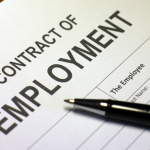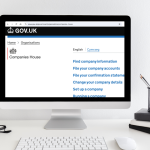600K HMRC Penalties Issued to Low-Income Earners
HMRC penalties on low-income earners have soared, with over 600,000 late-filing fines issued to individuals who owe no income tax. If you fall into this group, self-employed on modest earnings, you’re still at risk of automatic £100 penalties, escalating into four- or five-figure sums. RiverView Portfolio can help you navigate self-assessment, avoid HMRC penalties and secure your financial peace of mind.
Why Does This Matter?
Many of the people fined are self-employed but earn only a few thousand pounds each year – a level of income that carries no tax liability but nonetheless triggers the requirement to submit a self-assessment return. A missed deadline automatically attracts a £100 fine, which rises over time to £1,600. If this cycle continues across subsequent years, penalties and interest can push the total liability well into the tens of thousands. Vulnerable individuals, including those with mental-health challenges or unstable living circumstances, are particularly prone to missing deadlines and facing penalties they neither anticipated nor can afford.
What Real Life Impact Do These Penalties Have?
Take the case of “Andrea” (name changed). Struggling with severe mental-health difficulties, her annual self-employment income was always well below the threshold at which tax becomes payable. Yet, after failing to submit her return, she found herself billed for over £10,000 in late-filing penalties. Such figures not only compound existing hardship but can drive people into bankruptcy or destitution.
What’s Causing the Problem?
When the modern self-assessment system was introduced, late-filing penalties could be cancelled if, once a return was submitted, it became clear that no tax was due. However, a 2011 legislative change removed this safeguard, so the penalty remains even for non-taxpayers. Calls to restore fairness have gone unheeded, and while the Government has pledged reforms, including capping fines at £200 and removing the automatic £100 charge, these measures will only apply to higher-earning taxpayers under Making Tax Digital from April 2026. No date is set for extending relief to those on low incomes.
How to Avoid HMRC Penalties Low-Income Earners Face
-
Check Your Filing Requirement
Use HMRC’s online checker to confirm if you need to file: https://www.gov.uk/self-assessment-tax-returns
If you’re not liable, notify HMRC before 31 January to prevent penalties. -
Register Early
Register for self-assessment by early November to receive your UTR in good time.
Learn more: https://www.gov.uk/income-tax-rates -
Gather Your Documents
Keep records of all earnings, expenses and other income (dividends, rental). -
Seek Expert Support
Even a small error can incur HMRC penalties low-income earners shouldn’t have to pay. Our Accounting team ensures returns are accurate and on time.
Need help navigating self-assessment?
Protect yourself from disproportionate penalties and rest easy knowing your affairs are in safe hands. Contact RVP today for a no-obligation review and let us guide you through a seamless self-assessment experience.






